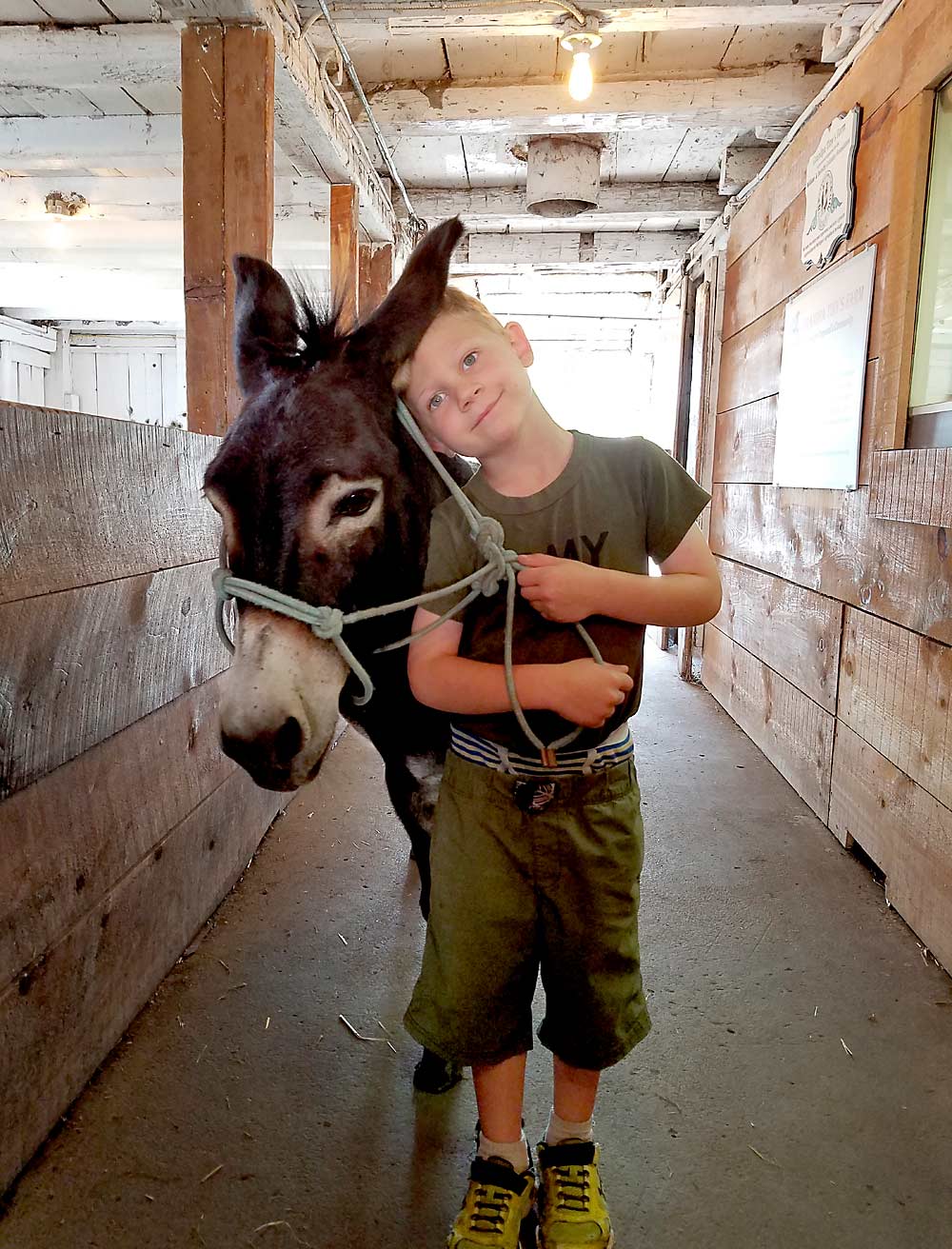
The pandemic put the spotlight on the benefits of agritourism, but the boom in attendance hasn’t faded away for the farms that enjoyed the boost.
Private market analysts tracking the agritourism industry domestically and globally predict continued growth in the sector in 2023. In Michigan, the return to “normal” includes many of the new customers farms gained in 2020, said Wendy Winkel, president of the Michigan Agritourism Association.
“We feel like it’s leveling off now that everything is going back to what was more typical (prepandemic), and yet we’ve still been able to retain some of those customers we gained over the last two years, which is excellent,” she said.
Winkel believes the trend will continue. A 2022 MAA member poll showed many farms have plans for agritourism-related expansion, including 18 percent planning to add a new activity, 13 percent constructing a new building, 12 percent installing more parking and 8 percent adding restrooms.
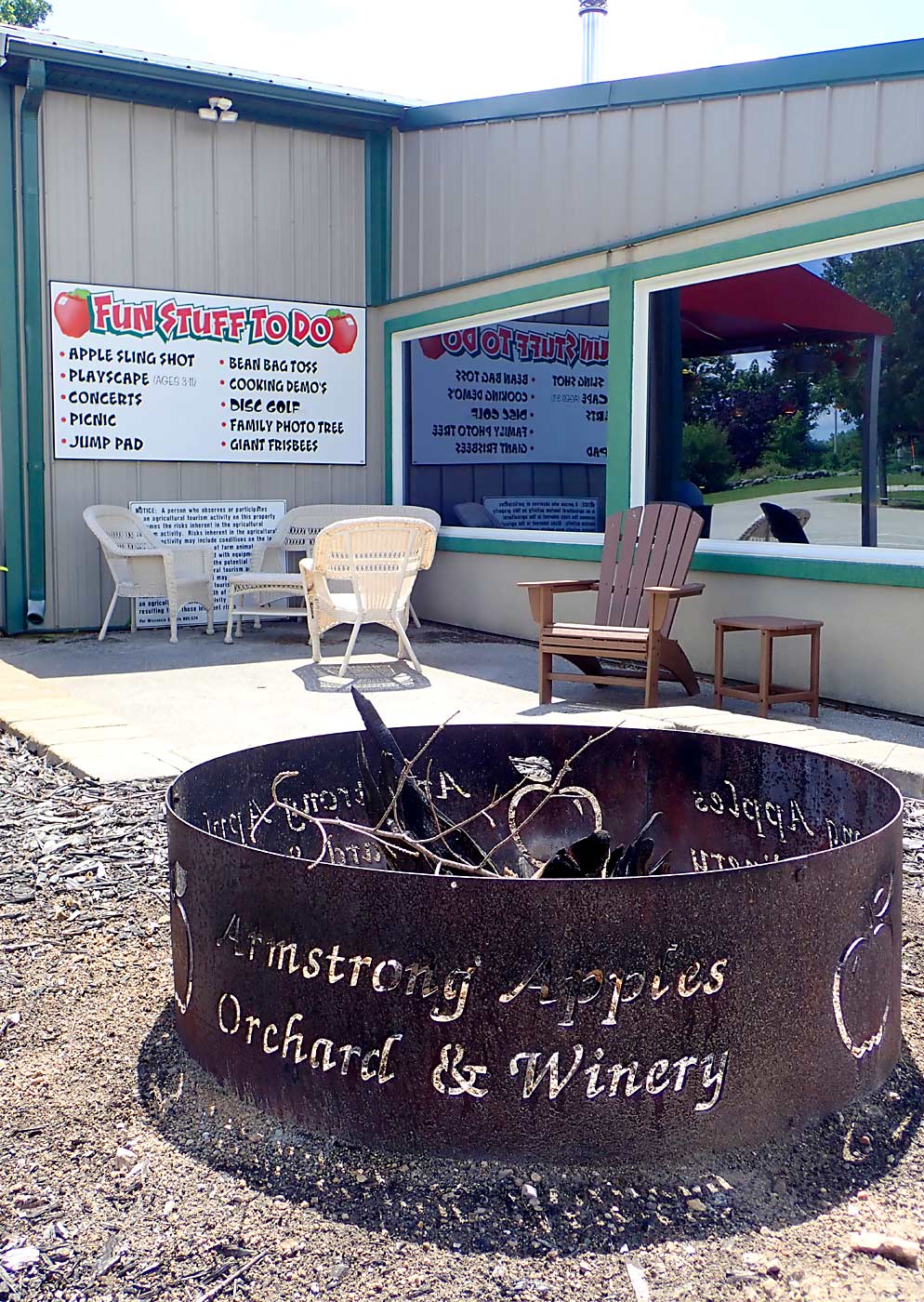
Crisis to opportunity
Remember 2020? The public yearned for safe, outside-the-house entertainment opportunities, and many farms were ready and waiting with all sorts of fun-on-the-farm activities outside in the fresh air, according to Winkel, who also owns Grandpa Tiny’s Farm in Frankenmuth, Michigan.
According to a poll in late 2021, association members reported experiencing a significant rise in agritourism attendance from 2019 to 2020, which was especially notable because 2019 was no slouch, Winkel said. “2019 was a phenomenal year on its own, with perfect weather,” she said, “so for the numbers in 2020 to beat those of 2019, that was pretty respectable.”
She estimates that farms saw at least a 10 percent hike from 2019 to 2020.
“It wasn’t surprising to see that agritourism jumped significantly during the pandemic, because we were the outside location with lots of acreage, we could open giant barn doors (for ventilation), and people just felt like we were a safe location to visit,” Winkel said. “It’s probably a similar case across the entire nation, if not internationally as well.”
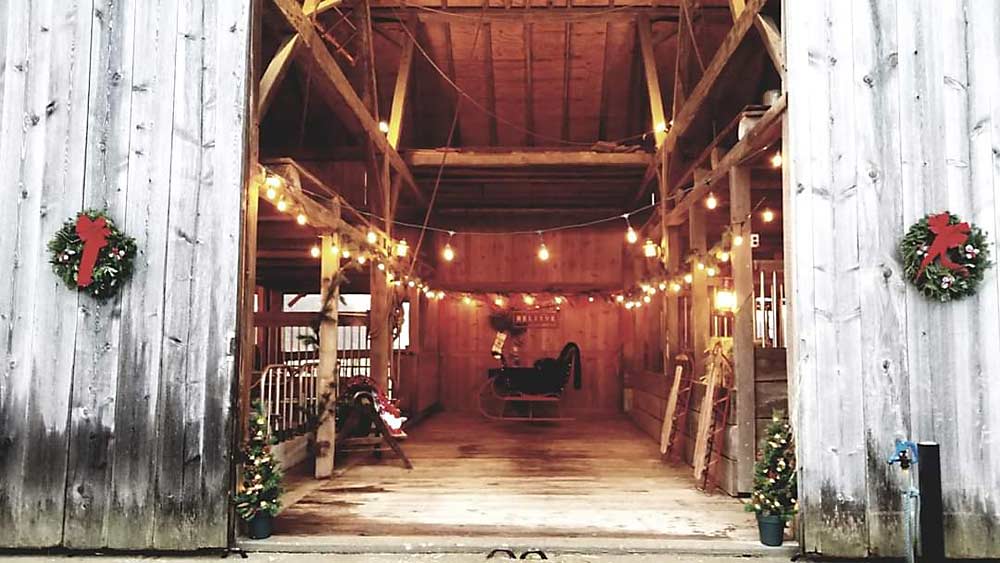
The MAA poll showed good news continuing: Most association members reported attendance remaining higher than average in 2021 and 2022, and 40 percent reported further increases.
“Almost all of us, however, were up or at similar numbers to 2020, which was fantastic,” she said.
Fun on the apple farm
New activities are always on the drawing board at Nugent Orchards in Benzonia, Michigan. The farm already offers a pumpkin patch, corn maze, hay wagon rides, U-pick apples, cider-and-doughnut stand, a wedding venue and a “glamping” site with for-rent cabins set in a heavily wooded area. They try to add something new each year, according to Pete Nugent, who co-owns the farm with his four siblings.
“We’ve had a hay pyramid, for example,” he said. “So, in that case, it was something kids would have fun playing on.”
The farm got into agritourism about five years ago. “We wanted to supplement our income. The fruit business goes up and down, so we like the stable income that it appears to offer,” Nugent said.
They didn’t see a drop-off in visitors in 2022.
“During the pandemic, people saw (farm visits) as a good, safe outing, so they came, and it was nice,” he said. “We seem to be staying steady (so far), and we’re hoping to improve.”
Although agritourism does come with a bit of a learning curve and its own set of expenses, they are sticking with it, Nugent said.
“There’s a real hunger with people wanting to come and pick apples or other produce on farms, and that wasn’t offered (here), so we gave agritourism a shot, and it’s just becoming more and more popular,” he said.
Armstrong Apples Orchard and Winery in Armstrong, Wisconsin, stepped into agritourism more than a decade ago with its apple slingshot — customers shoot otherwise-unsellable apples at targets — and grew from there. The farm now offers a picnic area with a playset, jump pad, apple-themed cornhole game, climbable spiderweb, wine bar and small restaurant to go with its U-pick apples.
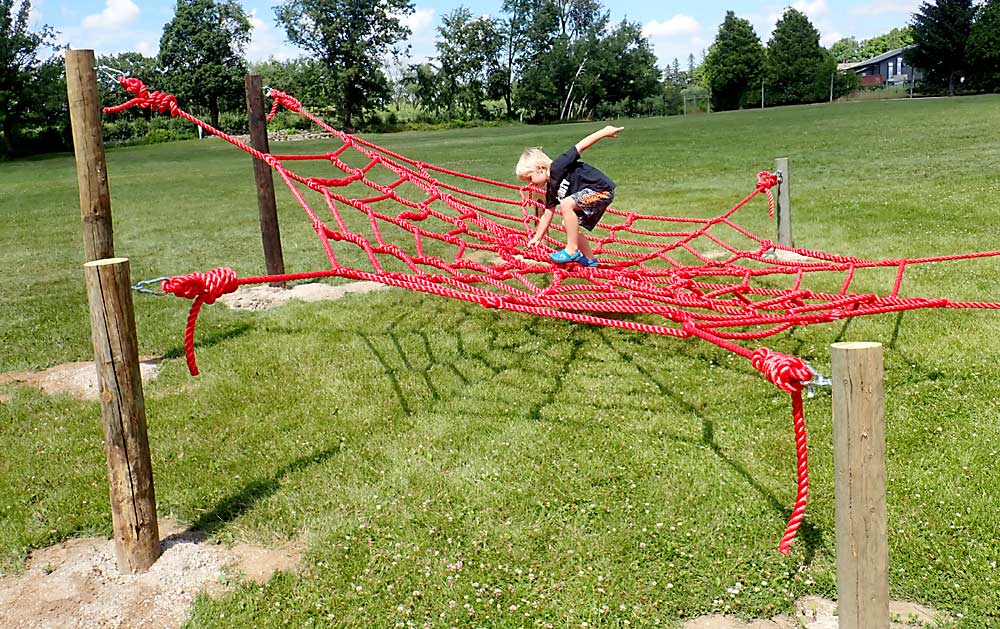
“With the play area and jump pad, parents will just come here and have a glass of wine, let their kids play, and enjoy their afternoon,” said co-owner Chad Fox. In addition, the farm has an outdoor stage for concerts. “We have a rock patio stage where the band sets up,” he said, pointing to a field. “We open up the field, and we can have 300 to 500 people out here.” During concerts, they sell wine to help turn a profit.
Agritourism grew at Armstrong Apples during the pandemic — to a record high that hasn’t been repeated.
“2020 was our best year ever,” Fox said. “We shut down for two-and-a-half weeks in March, and then decided to open up because the state classified liquor stores, breweries and wineries as essential businesses to be open. The outdoor stuff really helped out, and while we let people go inside, we also did wine tastings outside.”
That helped introduce new customers to the farm for the long term, he said. He also sees agritourism as a way to support the small surrounding community, which has few other entertainment options. “It’s just nice to have a place where people can get together and see their neighbors,” he said.
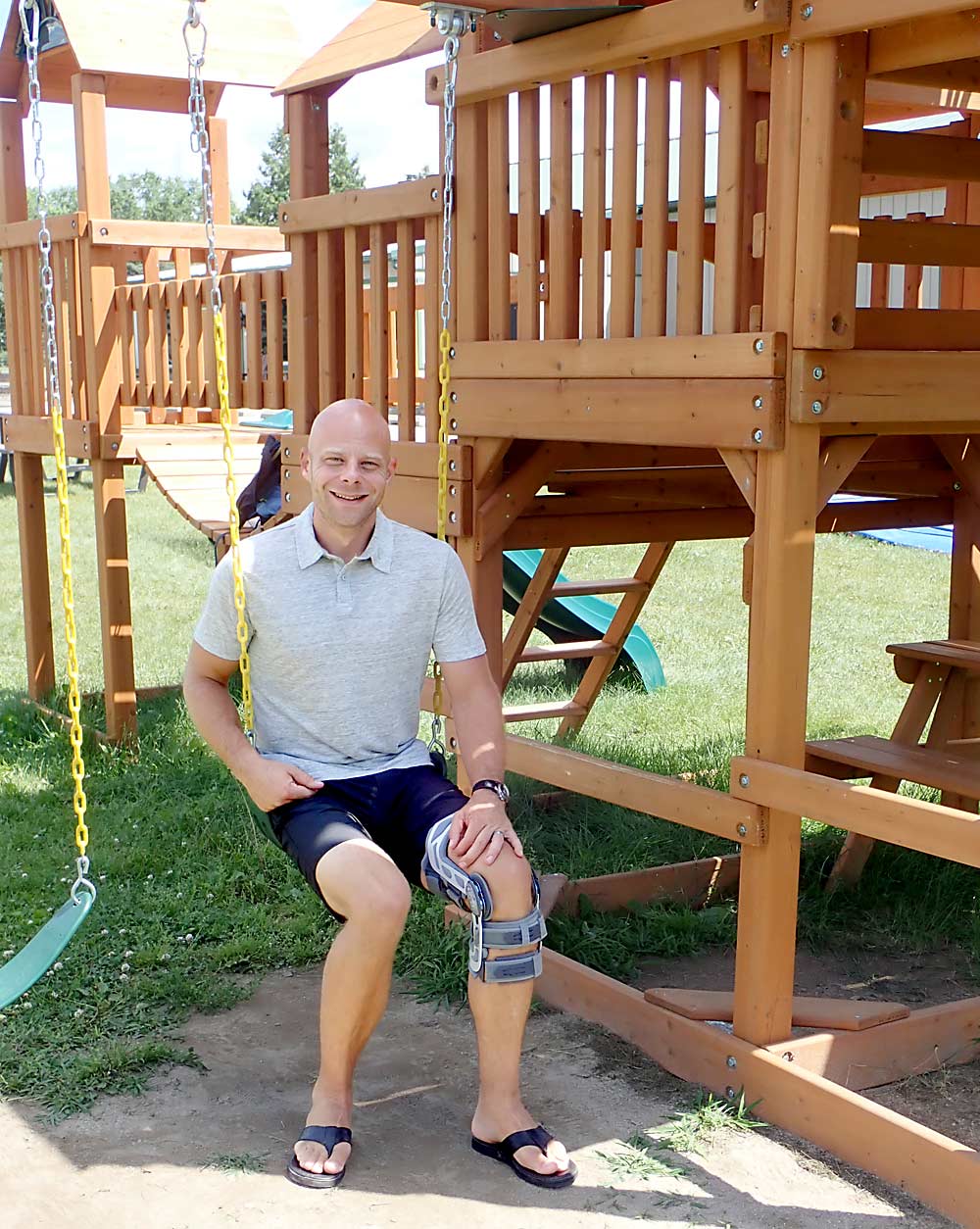
Tourism outlook strong
Agritourism is a no-brainer for a lot of reasons, not the least of which is the income boost, Winkel said, and thinking outside the box can mean a healthy profit.
Instead of bagging unmarketable apples and selling them to hunters for deer feed, she is now selling them one at a time and at $2 apiece to customers who want a chance to feed a cow. That turns a $10 bag of 60 deer apples into $120 in cow apples, she said, “and the customers just love it.”
Agritourism also offers the benefit of free advertising.
“Putting aside the increase in revenue and the education to the public that agritourism provides, just look what happens when you bring people to your farm: They take photos, post them all over social media and tag your farm,” Winkel said. “And then all these other people see that post, like it, comment on it, and ask where the photo was taken.”
Winkel encourages that activity by pointing out — and creating — photo opportunities on the farm. “Honestly, most of my advertising plan is strictly organic.”
At the Great Lakes EXPO in Grand Rapids, Michigan, in December, Winkel spoke about agritourism and its potential for orchards, vineyards and other farms, offering easy ideas to add $5,000 to a farm business.
“That’s a seasonal worker’s pay, and if a small farm can implement a few of these ideas, that could be $10,000 to $15,000, so that’s a lot,” she said. “Really, if someone is not doing any form of agritourism on their farm, they should look into it.”
—by Leslie Mertz


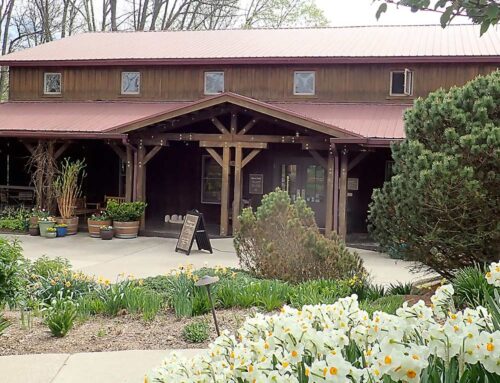
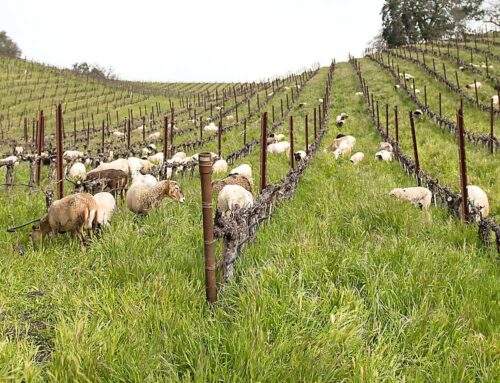
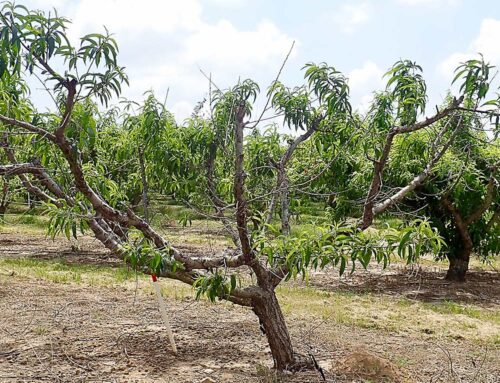
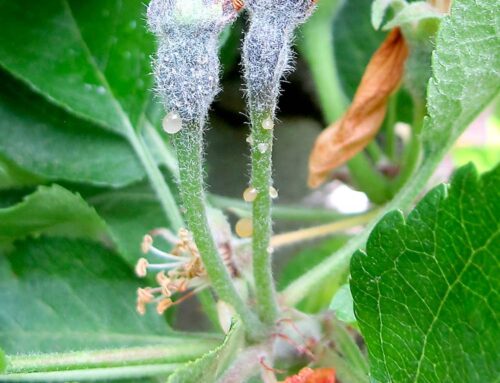
Leave A Comment